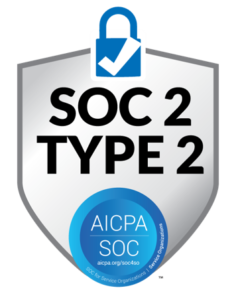Executive summary:
- A strong culture can help attract and retain top talent
- Creating a positive culture requires a strong labor management program
- A Labor Management System System (LMS) supports a good culture through real-time data and better engagement
In today’s competitive labor market, businesses must look for ways to attract, retain and best utilize workers. But with so many employment opportunities available within distribution and fulfillment, simply offering higher pay is not enough. Associates want to work in an environment where they feel valued and supported. That is why having an appealing company culture is vital.
Best-in-Class organizations are creating a positive culture for their employees through the use of Labor Management System Software. An LMS can drive higher levels of retention and performance by offering a formal approach to improving your engagement, recognition, reward, and Performance management programs.
What is Company Culture?
Company culture is the shared values, standards, attitudes, and behaviors that make up a work environment. It includes both the formal systems and the informal behaviors that shape the day-to-day experience at a company and is ingrained in an organization’s goals, strategies, structure, labor management and customer service.
Why Company Culture Matters
A strong culture can help attract and retain top talent and position the company as an “employer of choice” with job seekers. In fact, 46% of job seekers say company culture is important when choosing where to apply, and 56% of employees rank good workplace culture as more important than salary.
Improving employee engagement and satisfaction through a positive culture can lead to better performance and better customer service – giving your organization a competitive edge. Studies show that companies with highly engaged employees can be 21% more profitable.
Creating a Strong Company Culture
How an organization approaches labor management is directly connected to the workplace culture. Here are five characteristics of a positive, supportive company culture.
- Fairness. Employees want to be treated fairly, and a lack of fairness in administering policies, procedures and performance expectations can negatively impact employees. Today’s labor management software uses engineered labor standards to set clear and fair performance expectations. Supervisors can also see how associates are performing in real time and identify those who are struggling. Ignoring inferior performance, or even shifting more work to other employees without recognition or reward, can cause high performers to become disgruntled and leave the company.
- Rewards and recognition. Rewarding or recognizing employees for their contributions can boost their motivation and satisfaction. In fact, 80% of employees would work harder if they felt better appreciated by their supervisors. Furthermore, strong employee recognition programs reduce turnover rates by 31% and employees who are recognized are almost six times more likely to stay at their jobs than those who are not. A robust labor management system with business intelligence reporting capabilities allows supervisors to consistently recognize and reward high-performing employees. This can happen via incentive pay or other non-monetary rewards, such as extra break time or company swag.
- Collaborative environment. Companies are increasingly looking for ways to make work environments fun to keep employees engaged and motivated, such as creating friendly competition with gamification. For example, letting associates earn points for achieving performance milestones which can be cashed in for prizes or other rewards. An LMS enables organizations to monitor performance in real time and communicate those metrics to associates throughout the day using production boards.
- Effective communication. Employees want to know what is expected of them, how they are performing and how their work contributes to achieving the company’s goals. With access to real-time performance data, supervisors can immediately provide accurate and detailed feedback, so associates know exactly where they stand compared to expectations and peers. Regular, data-supported engagement between managers and associates creates a positive and transparent environment, resulting in higher employee morale. Effective communication involves more than just discussing performance metrics; it means clearly discussing obstacles that affect employees like process or layout changes and being open to their improvement ideas.
- Continuous improvement. Continuing to improve the work environment – whether it is addressing process inefficiencies or other barriers to productivity shows employees that the organization cares about them and their contributions. Continuous improvement is especially valuable when organizations implement changes suggested by associates, demonstrating the importance of their opinions. Unfortunately, a Officevibe’s Pulse Survey found that 30% of employees do not feel like their companies give enough importance to their opinions and suggestions.
Ensuring You Have a Strong Company Culture
Organizations with a strong company culture invest in their employees. A tier-1 LMS supports supervisors with tools for consistent, data-driven interactions with associates, creating the supportive work environment they want.
Organizations should also measure the quality of their culture by seeking direct feedback from employees regarding the level of communication, fairness, or support through surveys. Low scores on employee surveys along with high turnover rates are good indicators that improvements may be needed to your company culture.
Connect with TZA today to learn how a labor management system can help improve your company culture.
Author: Jason Morrisey, Account Manager, Customer Success Team
Related TZA Resources:


